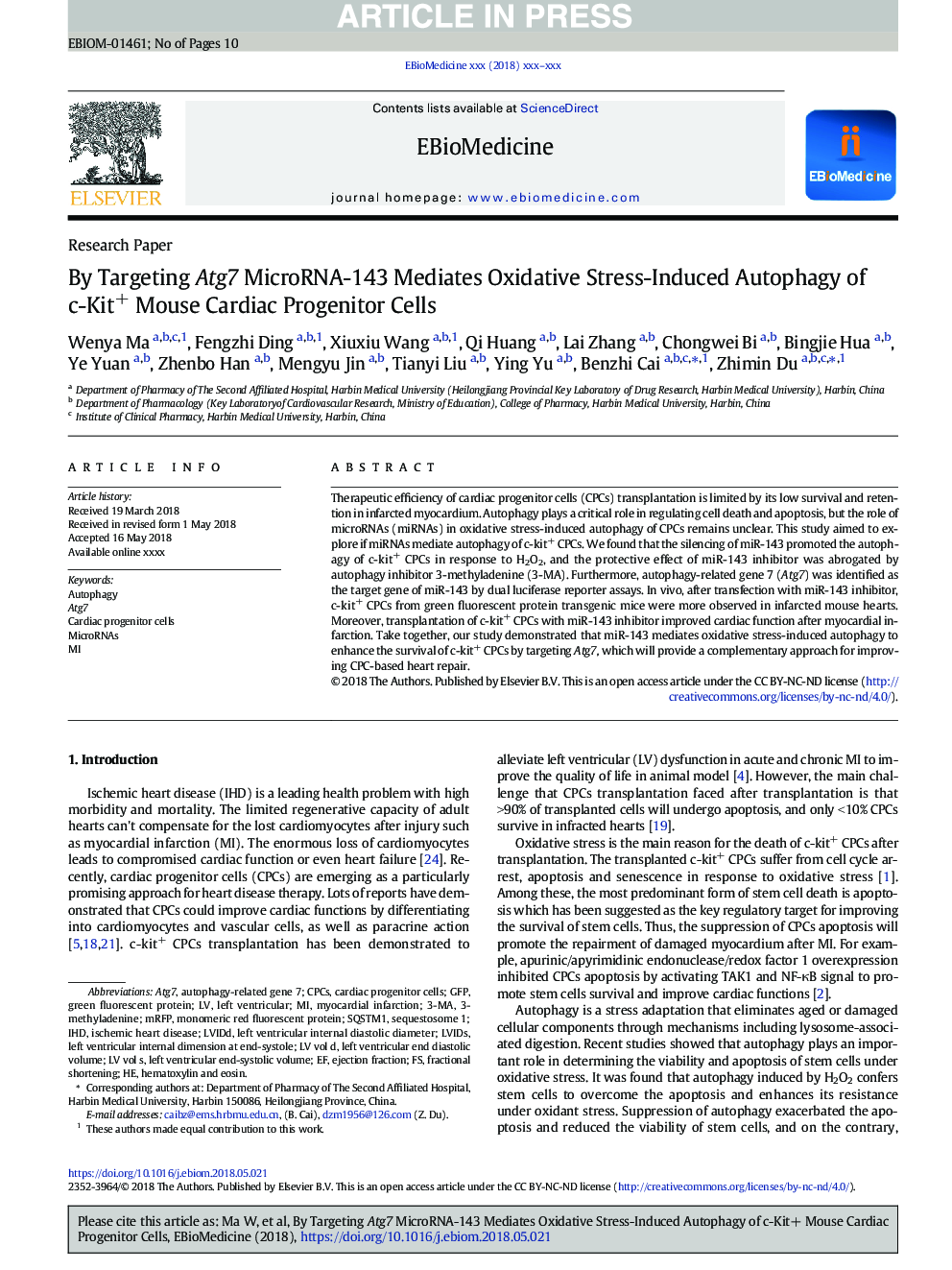| Article ID | Journal | Published Year | Pages | File Type |
|---|---|---|---|---|
| 8437138 | EBioMedicine | 2018 | 10 Pages |
Abstract
Therapeutic efficiency of cardiac progenitor cells (CPCs) transplantation is limited by its low survival and retention in infarcted myocardium. Autophagy plays a critical role in regulating cell death and apoptosis, but the role of microRNAs (miRNAs) in oxidative stress-induced autophagy of CPCs remains unclear. This study aimed to explore if miRNAs mediate autophagy of c-kit+ CPCs. We found that the silencing of miR-143 promoted the autophagy of c-kit+ CPCs in response to H2O2, and the protective effect of miR-143 inhibitor was abrogated by autophagy inhibitor 3-methyladenine (3-MA). Furthermore, autophagy-related gene 7 (Atg7) was identified as the target gene of miR-143 by dual luciferase reporter assays. In vivo, after transfection with miR-143 inhibitor, c-kit+ CPCs from green fluorescent protein transgenic mice were more observed in infarcted mouse hearts. Moreover, transplantation of c-kit+ CPCs with miR-143 inhibitor improved cardiac function after myocardial infarction. Take together, our study demonstrated that miR-143 mediates oxidative stress-induced autophagy to enhance the survival of c-kit+ CPCs by targeting Atg7, which will provide a complementary approach for improving CPC-based heart repair.
Keywords
autophagy-related gene 7LVIDssequestosome 1SQSTM1LVIDdmRFPATG73-MAIHDCPCSGFP3-methyladenineMyocardial infarctionAutophagyLeft ventricularischemic heart diseaseleft ventricular end diastolic volumeleft ventricular end-systolic volumemicroRNAsCardiac progenitor cellsHematoxylin and Eosingreen fluorescent proteinmonomeric red fluorescent proteinejection fractionfractional shortening
Related Topics
Life Sciences
Biochemistry, Genetics and Molecular Biology
Cancer Research
Authors
Wenya Ma, Fengzhi Ding, Xiuxiu Wang, Qi Huang, Lai Zhang, Chongwei Bi, Bingjie Hua, Ye Yuan, Zhenbo Han, Mengyu Jin, Tianyi Liu, Ying Yu, Benzhi Cai, Zhimin Du,
